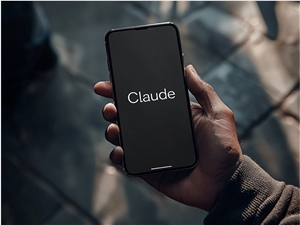In today's world, AI models can create stories, images, and even short films with just a few prompts. However, Webb Wong, founder and CEO of Flora, believes that existing AI tools have a fundamental problem—they are "made by non-creatives for non-creatives to feel creative," rather than designed for true creative professionals.
Flora officially launched this week with a clear manifesto: "AI creative tools shouldn't just be toys for generating AI garbage." Wong and his team, "obsessed with building a powerful tool that profoundly impacts the future of creative work," position Flora as a unique solution, distinct from existing AI tools ("that make creation easy but lack creative control") and traditional creative software ("that offer control but are unintuitive and time-consuming").
Unlike other companies, Flora isn't focused on building better generative AI models. "Models aren't creative tools," Wong explains, "The model doesn't matter, the technology doesn't matter, the interface matters." Flora provides an "infinite canvas" that integrates existing AI models, allowing users to generate and manipulate text, image, and video blocks. For example, a user could generate an image of a flower, then ask for details, these interactions sparking further prompts and image variations, all mapped on a shared canvas for easy client collaboration.
While Wong hopes Flora will serve all artists and creatives, the company will initially focus on collaborating with visual design agencies. Currently, Flora is iterating its product based on feedback from designers at renowned design agency Pentagram. Wong states their goal is to enable Pentagram designers to "do 100x more creative work," such as rapidly generating multiple variations of logo designs. He likens this transformation to the evolution of music creation—from Mozart needing "a whole orchestra" to modern musicians who can "make and release to SoundCloud on their own using Ableton in their New Jersey garage."

Wong, with a background in both art and technology, previously worked as an investor at Menlo Ventures before pursuing studies at NYU's Interactive Telecommunications Program to learn how to use technology to create art. When Flora launched its alpha version in August, Wong curated an art project where website visitors, after joining a waitlist, had the chance to have the feed from a GoPro camera on his head stylized in real-time using AI.
Despite skepticism and even strong opposition from some artists and professionals regarding AI's role in art, Wong believes existing models have been embraced by "AI natives," and he hopes Flora will attract "AI curious" individuals, eventually becoming so practical that even "AI haters" will have to try it. Regarding copyright and intellectual property concerns in AI model training, Wong points out that Flora doesn't train AI models itself and pledges to "follow societal standards."
While Wong is keen to avoid Flora being used to generate "AI garbage" ("we're going to get hats that say 'anti-AI garbage'"), he believes the startup will help artists explore "new aesthetics and creative possibilities," much like the Kodak Brownie camera once made photography more accessible and convenient.
Flora hasn't disclosed specific funding details, but backers include A16Z Games. The product offers a limited free version, with professional plans starting at $16 per month.










